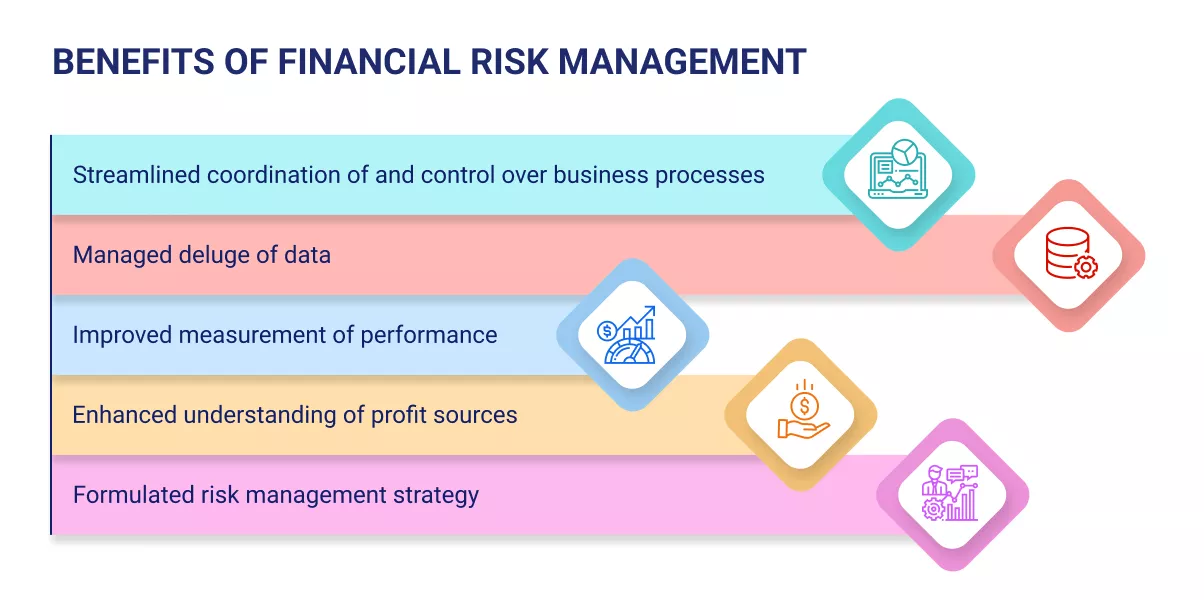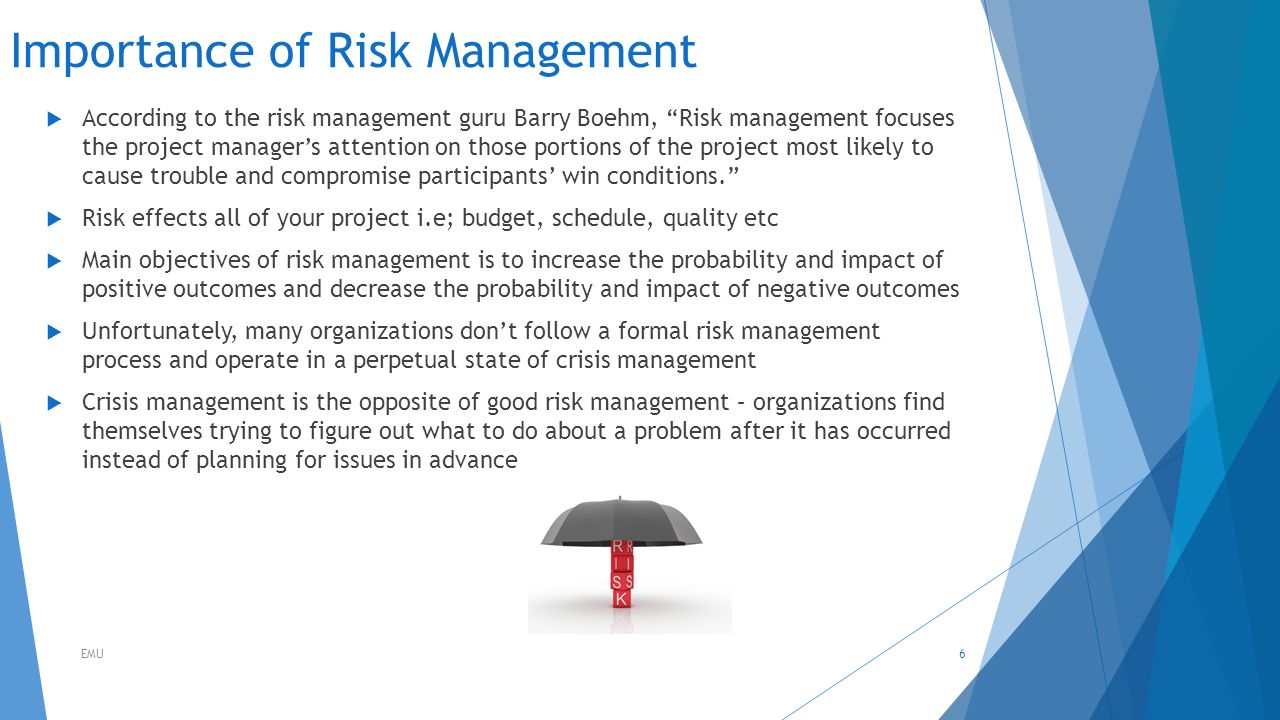Unlocking the True Importance of Risk Management for Long-Term Growth
Unlocking the True Importance of Risk Management for Long-Term Growth
Blog Article
The Relevance of Comprehending the Relevance of Risk Management in Various Industries

The Core Concept of Risk Management and Its Function
Risk Management, the keystone of many markets, hinges on the identification, evaluation, and mitigation of uncertainties in a company atmosphere. By appropriately recognizing prospective risks, businesses can create strategies to either avoid these threats from happening or lessen their influence. Once risks have been recognized and examined, the mitigation process involves devising methods to decrease their possible impact.
Benefits of Carrying Out Risk Management in Business Operations

Revealing the Role of Risk Management in Different Industries
While every sector faces its one-of-a-kind set of dangers, the application of Risk Management approaches continues to be a common in their quest of sustainability and development. In the healthcare industry, Risk Management involves making certain patient safety and information defense, while in money, it entails mitigating financial investment threats and ensuring regulatory compliance. Eventually, the duty of Risk Management throughout markets is to determine, examine, and reduce dangers.
Real-life Study Demonstrating Effective Risk Management
To recognize the value of Risk Management in these numerous fields, one can look to a number of real-life circumstances that highlight the effective application of these measures. Toyota, upload the 2011 quake in Japan, modified its supply chain Management to decrease disturbance dangers. These situations show how sectors, discovering from dilemmas, efficiently used Risk Management techniques to minimize future dangers.
Future Trends and Advancements in Risk Management Techniques
As the globe remains to evolve, so as well do the fads and growths in Risk Management approaches. Quick improvements in modern technology and data analytics are reshaping the Risk landscape. Big data and AI are useful site now critical in anticipating and alleviating risks. Organizations are leveraging these devices to develop predictive versions and make data-driven decisions. Cybersecurity, when an outer concern, has catapulted to the forefront of Risk Management, with techniques concentrating on reaction, avoidance, and discovery. The assimilation of ESG (Environmental, Social, Administration) aspects into Risk Management is an additional expanding fad, mirroring the raising acknowledgment of the function that environmental and social risks play in business sustainability. Therefore, the future of Risk Management depends on the fusion of innovative modern technology, ingenious techniques, and an all natural strategy.
Verdict
To conclude, recognizing the importance of Risk Management throughout a range of industries is essential for their durability and success. Customized methods can help minimize potential threats, protect properties, and foster stakeholder trust fund. Additionally, aggressive decision-making aids in regulatory compliance and enhances resource use. Ultimately, successful Risk Management contributes to extra sustainable and durable companies, highlighting the relevance of this technique in today's highly competitive and vibrant company atmosphere.
While every industry challenges its unique set of risks, the implementation of Risk Management strategies continues to be a typical in their pursuit of sustainability and growth. In the healthcare sector, Risk Management entails ensuring individual safety and security and data security, while in financing, it includes mitigating investment threats and making sure regulatory conformity. Ultimately, the function of Risk Management throughout markets is to determine, evaluate, and mitigate risks. These cases demonstrate just how sectors, finding out from crises, Going Here effectively applied Risk Management techniques to decrease future threats.

Report this page